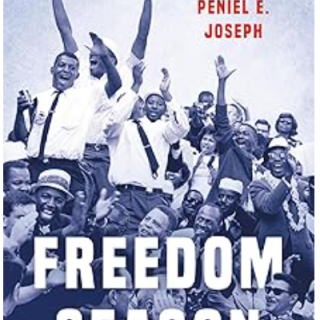Advertisement
Wes Ball renews the franchise with "Kingdom of the Planet of the Apes," propelling the beloved saga into a new era with a blend of grand world-building, visceral action, and poignant storytelling.
The film opens with Caesar’s funeral, honoring his legacy and setting the tone for the rest of the movie––an integral character to the lore is celebrated without becoming the central focus.
Set generations after Caesar's reign in a post-apocalyptic world where apes rule, and humans lurk in the shadows, Proximus Caesar (Kevin Durand) commands, aiming to maintain ape dominance. However, a young ape, Noah (Owen Teague), embarks on a journey that will challenge everything he’s been taught and ultimately define the future for both species.
Noah’s bravery and ambition make him a protagonist you root for, while his impressionable nature and evolving choices create a compelling narrative arc. Proximus, determined to keep apes free, uses questionable tactics to advance his agenda and avoid repeating history, making him the perfect foil to Noah.
Freya Allan, as Mae/Nova (a human), joins Noah on his journey while pursuing her own agenda. Her point of view contrasts nicely with Noah’s. Peter Macon, as Raka, is a wise and noble orangutan who brings humor and heart to the story, making him a crowd favorite.
A masterclass in world-building, this story seamlessly connects to past installments while forging a unique style. The motion capture and CGI are top-notch, creating realism and relatable struggles that foster an emotional connection with the apes. The detailed set pieces, from lush jungles to decaying cities, symbolize humanity's decline.
Ball’s direction keeps the 2.5-hour runtime cruising with visceral, fast-paced action that’s brutal when necessary. Some plot points remain open, hinting at potential future installments. What’s gripping is the portrayal of the apes’ shift from a peaceful culture to human-like behavior, driven by betrayal, fear and revenge. John Paesano’s score is competent but lacks the emotional depth of Michael Giacchino’s work.
Though it occasionally drags, exploring past human-ape coexistence is crucial to the narrative, allowing the film to explore themes like power dynamics, societal evolution, and adaptation.
"Kingdom of the Planet of the Apes”; successfully stamps a fresh path for the franchise while honoring its roots. Caesar’s presence permeates, with his legacy respected by some and twisted by others to fit their agendas––sound familiar? The film illustrates how Caesar’s character and actions continue to shape the world of the apes long after his death, revealing how history can be manipulated over time.
Rating: 3.5/5



